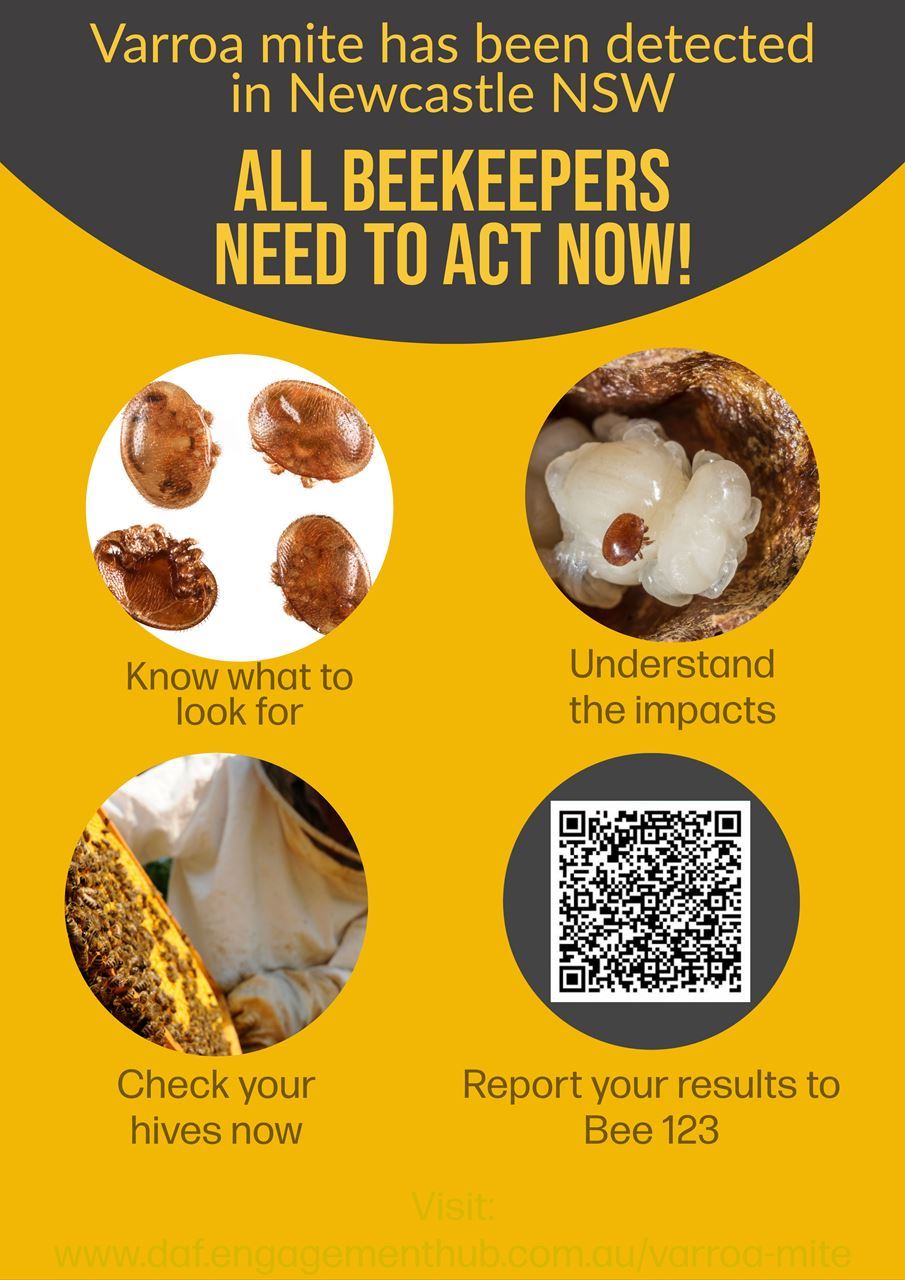|
Industry Updates
Although beekeeping maybe a career for some, for many it is an enjoyable recreational activity. Regardless of what your beekeeping background is, or your level of investment in the industry, staying informed of the latest industry developments and news is essential for every beekeeper across the state.
From the latest media buzz around bees, to the concern and threat posed from honey bee pests and diseases, this section of the QBA website is dedicated to supporting our industry.
We welcome suggestions and feedback on the content you'd like to see on this page. Please send any feedback to info@qbabees.org.au and one of the team will explore your suggestions.
 Varroa destructor was detected in Newcastle NSW on the 22 June 2022. Varroa mite presents a significant threat to Australian honey bees. The parasitic mite is a host to a number of diseases yet to reach Australian shores.
Varroa destructor was detected in Newcastle NSW on the 22 June 2022. Varroa mite presents a significant threat to Australian honey bees. The parasitic mite is a host to a number of diseases yet to reach Australian shores.
Whilst the decision was made to transition to management of the mite in September 2023 every beekeeper in Australia must be on watch for this tiny enemy. Beekeepers are urged to take immediate action and monitor for the mite's arrival in Queensland.
Varroa mite will become established across the Australian environment and every Australian household will eventually feel the impacts of the mite. As our beekeepers battle to manage mite populations, Australian households will feel the squeeze through the decline in production of our world class honey varieties, to the decline in honey bee populations, ultimately impacting the supply of managed honey bees for the pollination of 35 crops varieties.
Industry and Government are working closely together on the national transition to management program and all Queensland based beekeepers are actively encouraged to support the QBA as we all migrate our journey into the new era of Australian beekeeping.
For more information on varroa and the Queensland's transition to management activities, please visit the QBA's Varroa mite portal.
Blog posts
-
18 December 2025 3:17 PM
-
14 February 2025 2:27 PM
-
07 February 2025 2:22 PM

